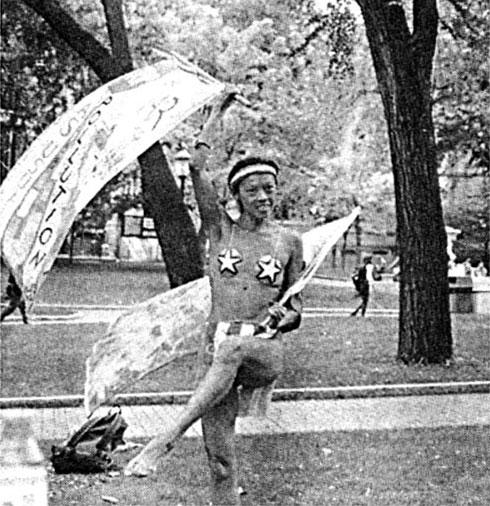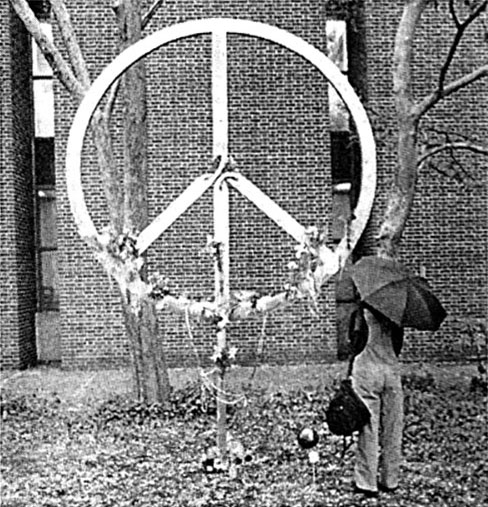words about jh | interview
Building A Musical Fourth World
richard kadrey | wired | 1997
AMERICAN TRUMPETER AND composer Jon Hassell will be the keynote speaker and performer at this year’s Manca New Music festival in Nice, sponsored by France’s Centre Internationale de Recherche Musicale. Beginning Thursday and running through 12 November, the theme of this year’s festival, “possible hybrids between traditional and contemporary musics,” is one close to Hassell’s heart.
For decades, Hassell has been developing a philosophy of both playing and composing that he calls “Fourth World,” which he says is “a term to describe the possibility of music in global terms beyond First World, beyond Third World, beyond High-Tech Art classical, beyond pop.” He’s described fourth world as an ideal blend of traditional music from around the world with Western forms and modern electronics, forming a kind of contemporary folk music from “unknown and imaginary regions.”
Since the 1979 release of Vernal Equinox, his first solo album, Hassell has been morphing sounds, song-writing techniques, and musical theory, blending old and new musics, trying never to lose the essence of either. On albums such as Earthquake Island, Dream Theory In Malaya, and Power Spot you can hear subtle experiments with and combinations of raga, gamelan, and pygmy vocal styles mixed with 20th-century Western classical composing techniques. More recently, Hassell has turned the fourth world eye back on modern America, transmuting club hip hop into something otherworldly on his album Dressing For Pleasure.
At the Manca fest, along with discussing the possibilities of new musical forms, Hassell will speak on what he calls the “banalization of the exotic.” This is the inevitable result, he argues, of “world music” becoming a mass-market form for big music labels. The banalization he speaks about covers both the corporate search for new forms to toss to a sensation-hungry public and a dumbing-down of other musical forms, such as the Western record company practice of bringing, for example, black African and Algerian pop musicians into the studio, not with their own bands, but with generic session musicians to tone down their styles and theoretically make them more marketable to a Western audience.
Hassell’s work reflects the opposite approach to creating music. Instead of trying to guess what the public will want next, he records exactly what fascinates him at the time. This means that his sound has shifted over the years, yet retains a solid center. If you listen to his 1983 album Aka-Darbari-Java, you’ll hear the classic early Hassell sound. The piece ‘Darbari Extension’ is a sonic exploration that he describes in the album’s liner notes: “A trumpet, branched into a chorus of trumpets by computer, traces the motifs of the Indian raga ‘Darbari’ over Senegalese drumming recorded in Paris and a background mosaic of frozen moments from an exotic Hollywood orchestration of the 1950s…”
Ironically, Hassell’s own search through various musical styles and disciplines—which included time both in India studying raga with master singer Pandit Pran Nath and in Germany studying with composer Karlheinz Stockhausen—has led him back to where he started: playing acoustic trumpet with no electronics and no effects. Hassell has spent more than 20 years tweaking the sound of his horn, playing through effects boxes to create clusters of horns and transform every note into a chord. However, in the past year, while playing sessions with musicians ranging from Seal to Björk to Ani Difranco to Ry Cooder, he was playing his trumpet without effects.
This helped bring Hassell back to a fascination with the horn’s naked sound. Hassell has not left electronics behind altogether. This fall, Hassell will perform Lurch, an evening-length piece originally commissioned by the Netherlands Dance Theater that played last September. Lurch is an exercise in what Hassell calls “self-sampling.” While Hassell plays an acoustic trumpet during the piece, he’s joined onstage by two DJs. The DJs sample and remix portions of Hassell’s own albums, while the trumpeter creates new melody and texture lines to accompany the piece.
At Manca, Hassell and his new band will perform some acoustic sketches for an upcoming version of Lurch. A recording of the performance will be issued at the festival, taking the idea of self-sampling one step further into self-bootlegging. The Manca performance will be the first time Hassell has been on stage in Europe in almost 10 years. Hassell and the band will then move on to performances in London and Amsterdam. •
This feature first appeared in Wired magazine
November 1997 | www.wired.com

